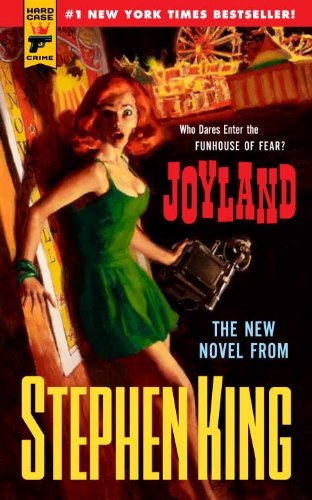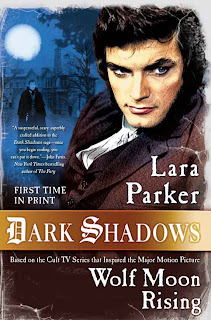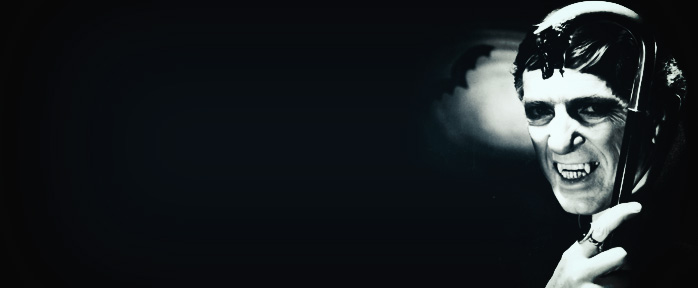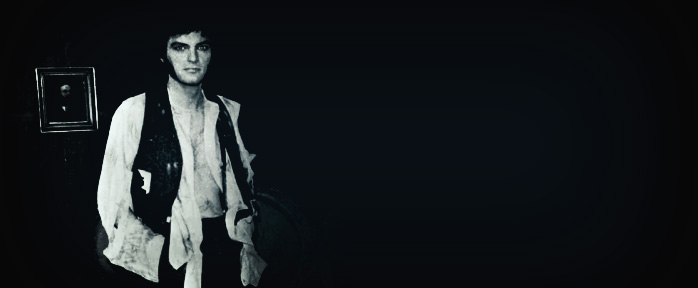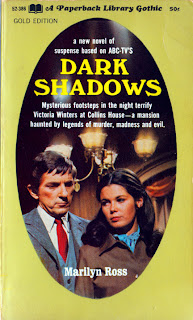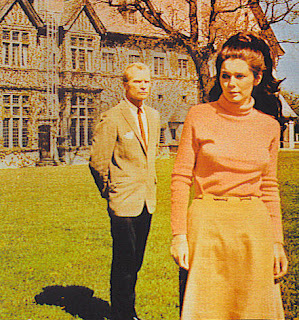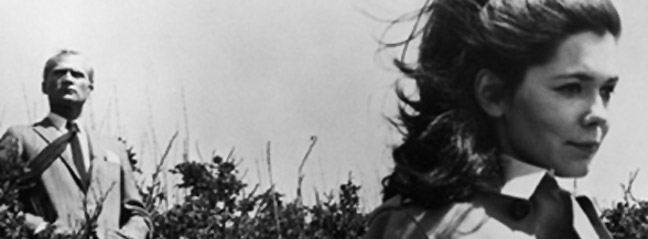My name is Wallace McBride, and I am not the target audience for SUBSTITUTE CREATURE.
This problem might not be the fault of the story, which is the fourth installment in Quirk Books' TALES FROM LOVECRAFT MIDDLE SCHOOL young adult series. The concept of the "young adult" novel is something that baffles me as a reader, and adding a horror element only makes the idea even more dubious. YA books exist in a literary twilight zone that provides uncomplicated, quasi-adult stories to younger readers who aren't quite ready to go full Cormac McCarthy. It's "literature" in the same way that Disney Channel programming is "drama."
At least, that was my understanding of YA books before cracking the spine of SUBSTITUTE CREATURE. For better or worse, my opinion of YA books hadn't changed when I'd finished the story later that same day. Anyone with the comprehension skills needed to read this book should kick off the training wheels and grab the first Neil Gaiman book they find.
To its credit, my ignorance of the first three novels wasn't much of an obstacle in understanding SUBSTITUTE CREATURE. The book does an admirable job of bringing you up to speed on the characters and their relationships, filling in the gaps organically as the story progresses. By this point in the series, the book's central characters have grown accustomed to the weird happenings at Lovecraft Middle School. Monsters, spirits, sorcerers and other assorted beasties are part of the daily curriculum at the troubled school. The series follows the adventures of a bland protagonist named Robert Arthur, who keeps among his circle of confidants the ghost of a 13-year-old girl, a former bully and a two-headed rat. And that's as apt a metaphor for middle school as I've ever seen.
When a freak snowstorm dumps several feet of snow exclusively on the school's hometown of Dunwich, Mass., Robert and his pals find themselves trapped at the school with a shady substitute teacher and a legion of monsters roaming the grounds. It's an unsophisticated story with an unsophisticated narrative, but moves along at such a brisk clip that it might not matter to the kids expected to read this kind of book. It's more fantasy than horror, and not likely to haunt the dreams of many children.
The book suffers from many of the same problems as J.K. Rowling's superior HARRY POTTER series: Child protagonists with wisdom and language skills far beyond their years, who keep secrets from adults for no other reason that to keep the story moving forward. These "secrets" are also a little troubling, but for reasons hopefully not intended by author Charles Gilman. A common problem in adventure stories featuring young protagonists is the challenge of keeping adults out of the mix. Authority figures will rightfully attempt to solve the story's conflict as a means to keep children out of danger, robbing young heroes of a complete narrative arc. The trick is to keep adults at bay without making them look stupid ... and without making the kids look like liars.
SUBSTITUTE CREATURE doesn't exactly stick the landing, in this regard. There's no obvious reason why the book's young heroes hide the truth about the school from authority figures, and the message here is troubling: If it's OK for kids to lie to their parents about an otherworldly wizard trying to murder them (and a lot of other people), what else is OK to lie about? Verbal abuse? Physical abuse? Sexual abuse? There's something unintentionally gross about the situations presented in SUBSTITUTE CREATURE, and none of them have to do with magic and monsters.
Again, SUBSTITUTE CREATURE wasn't intended for me. It's possible, even probable, that I'm comparing apples to oranges by expecting adult melodrama from a book aimed at children. Am I missing the point here? Does it even matter?
This problem might not be the fault of the story, which is the fourth installment in Quirk Books' TALES FROM LOVECRAFT MIDDLE SCHOOL young adult series. The concept of the "young adult" novel is something that baffles me as a reader, and adding a horror element only makes the idea even more dubious. YA books exist in a literary twilight zone that provides uncomplicated, quasi-adult stories to younger readers who aren't quite ready to go full Cormac McCarthy. It's "literature" in the same way that Disney Channel programming is "drama."
At least, that was my understanding of YA books before cracking the spine of SUBSTITUTE CREATURE. For better or worse, my opinion of YA books hadn't changed when I'd finished the story later that same day. Anyone with the comprehension skills needed to read this book should kick off the training wheels and grab the first Neil Gaiman book they find.
To its credit, my ignorance of the first three novels wasn't much of an obstacle in understanding SUBSTITUTE CREATURE. The book does an admirable job of bringing you up to speed on the characters and their relationships, filling in the gaps organically as the story progresses. By this point in the series, the book's central characters have grown accustomed to the weird happenings at Lovecraft Middle School. Monsters, spirits, sorcerers and other assorted beasties are part of the daily curriculum at the troubled school. The series follows the adventures of a bland protagonist named Robert Arthur, who keeps among his circle of confidants the ghost of a 13-year-old girl, a former bully and a two-headed rat. And that's as apt a metaphor for middle school as I've ever seen.
When a freak snowstorm dumps several feet of snow exclusively on the school's hometown of Dunwich, Mass., Robert and his pals find themselves trapped at the school with a shady substitute teacher and a legion of monsters roaming the grounds. It's an unsophisticated story with an unsophisticated narrative, but moves along at such a brisk clip that it might not matter to the kids expected to read this kind of book. It's more fantasy than horror, and not likely to haunt the dreams of many children.
The book suffers from many of the same problems as J.K. Rowling's superior HARRY POTTER series: Child protagonists with wisdom and language skills far beyond their years, who keep secrets from adults for no other reason that to keep the story moving forward. These "secrets" are also a little troubling, but for reasons hopefully not intended by author Charles Gilman. A common problem in adventure stories featuring young protagonists is the challenge of keeping adults out of the mix. Authority figures will rightfully attempt to solve the story's conflict as a means to keep children out of danger, robbing young heroes of a complete narrative arc. The trick is to keep adults at bay without making them look stupid ... and without making the kids look like liars.
SUBSTITUTE CREATURE doesn't exactly stick the landing, in this regard. There's no obvious reason why the book's young heroes hide the truth about the school from authority figures, and the message here is troubling: If it's OK for kids to lie to their parents about an otherworldly wizard trying to murder them (and a lot of other people), what else is OK to lie about? Verbal abuse? Physical abuse? Sexual abuse? There's something unintentionally gross about the situations presented in SUBSTITUTE CREATURE, and none of them have to do with magic and monsters.
Again, SUBSTITUTE CREATURE wasn't intended for me. It's possible, even probable, that I'm comparing apples to oranges by expecting adult melodrama from a book aimed at children. Am I missing the point here? Does it even matter?

